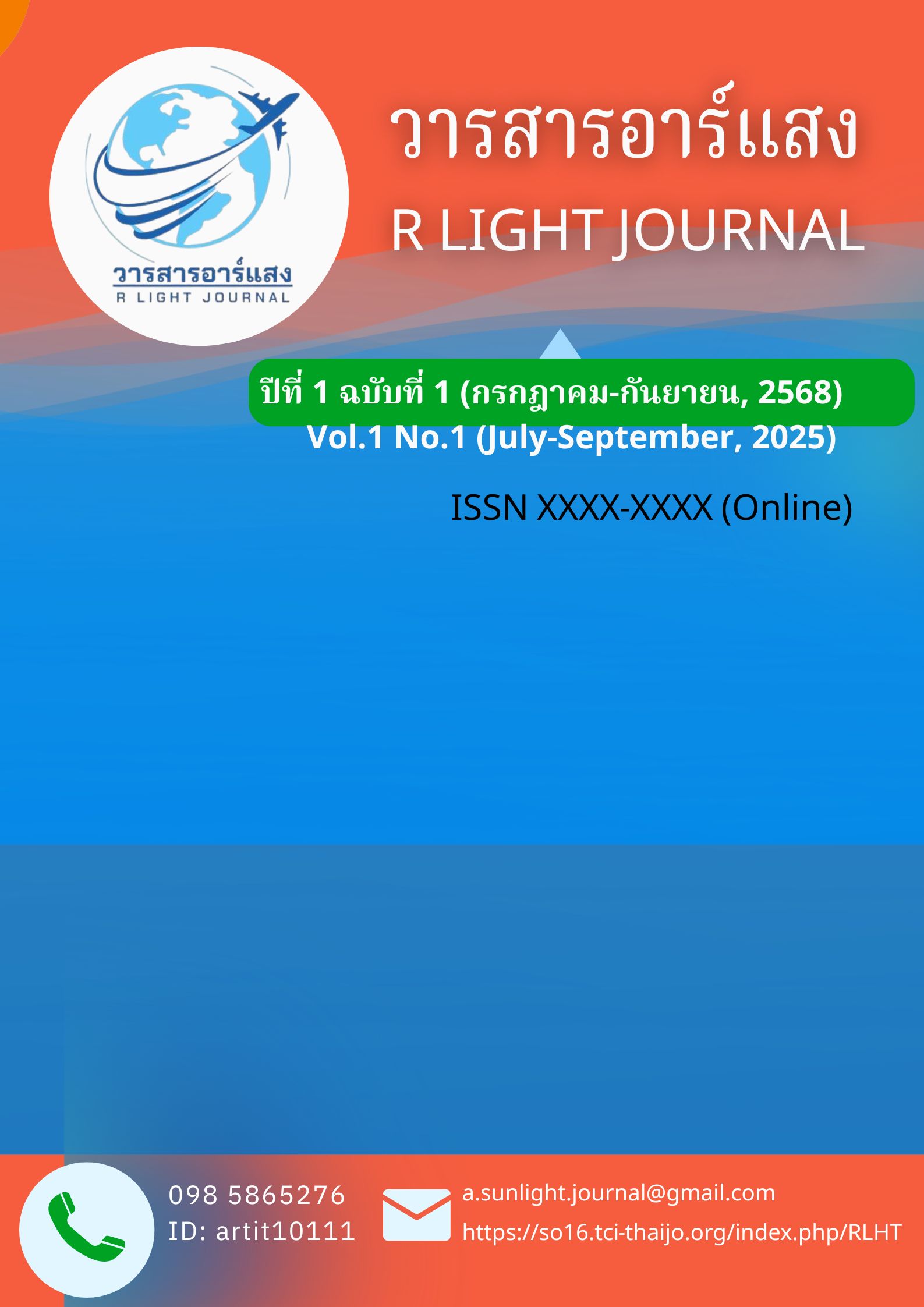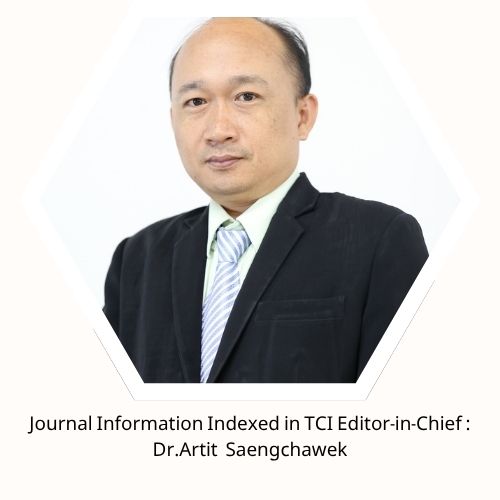FUTURE ESSENTIAL SKILLS FOR CHILDHOOD STUDENTS OF NAKHON PHANOM UNIVERSITY DEMONSTRATION SCHOOL, PHANOM PITTAYAPAT, FACULTY OF EDUCATION, NAKHON PHANOM
Keywords:
Basic thinking skills, Future essential skills, LearningAbstract
This research aimed to 1) develop essential skills for the future of early childhood students, 2) develop a learning experience plan that promotes essential skills for the future of early childhood students, and 3) compare learning skills by organizing learning experiences that promote essential skills for the future between before and after learning. The sample consisted of 35 early childhood students at the Demonstration School of Nakhon Phanom Phitthayalai University, Faculty of Education, Nakhon Phanom University, who were selected by cluster random sampling. The research instruments were 1) the learning experience plan for essential skills for the future of early childhood students, 2) the observation form for organizing learning experiences for essential skills for the future of early childhood students, 3) the assessment form for measuring basic thinking skills, and 4) the satisfaction questionnaire for the developed learning experiences. The statistics used for data analysis were mean, percentage, standard deviation, and Dependent Samples t-test.
The research results found that the basic thinking skills of early childhood children who received the learning experience were significantly higher after studying than before studying at a statistical level of .01. Early childhood children were highly satisfied with the learning experience ( = 2.78, SD = 0.45).
References
จงจิต เค้าสิม และ สันติ วิจักขณาลัญฉ์. (2567). ทักษะการคิดเชิงบริหารรากฐานพัฒนาการของเด็กปฐมวัยใน
ศตวรรษที่ 21. Journal of Roi Kaensarn Academi, 9(7),964-980.
ณัฐญา นันทราช. (2563). การพัฒนาทักษะการคิดพื้นฐานของเด็กปฐมวัย โดยการจัดประสบการณ์ การเรียนรู้
แบบไฮสโคปด้วยกิจกรรมเกมการศึกษา. วิทยานิพนธ์ครุศาสตรมหาบัณฑิต สาขาวิชาหลักสูตรและการ
สอน มหาวิทยาลัยราชภัฏสกลนคร.
ธีรภัทร โคตรบรรเทา และ ปิยวรรณ โคตรบรรเทา. (2568). การพัฒนาผลสัมฤทธิ์ทางการเรียนรายวิชาวิทยา
ศาสตร์สำหรับนักเรียน ชั้นประถมศึกษาปีที่ 3 โดยใช้การจัดกิจกรรมรูปแบบการเรียน แบบสะเต็มศึกษา.
วารสารสิทธิ์ทรรศน์,3(1), 62-73.
พัชรีย์ ซาเสน, เสนอ ภิรมจิตรผ่อง และ วิหาญ พละพร. (2562). การพัฒนาความคิดสร้างสรรค์ของเด็กปฐมวัยโดย
การจัดการเรียนรู้แบบ MATH-3C โรงเรียนนาหว้าประชาสรรค์สำนักงานเขตพื้นที่การศึกษาประถมศึกษา
มุกดาหาร. วารสารวิจัยและประเมินผลอุบลราชธานี, 8(2), 103-113.
รวินันท์ พอควร และ ธีรวัฒน์ มอนไธสง. (2565). การพัฒนาแผนการจัดประสบการณ์การเรียนรู้ของเด็กปฐมวัย
โดยใช้รูปแบบการ เรียนรู้แบบสตีมศึกษา (STEAM) ในสถานศึกษา สังกัดเทศบาลเมืองอ่างทอง. วารสาร
การบริหารนิติบุคคลและนวัตกรรมท้องถิ่น,8(5),199-212.
ราชกิจจานุเบกษา. (2562). พระราชบัญญัติการพัฒนาเด็กปฐมวัย พ.ศ. 2562. เล่ม 136 ตอนที่ 56 ก. หน้า 5
วณิชชา สิทธิพล และ ประดิษฐา ภาษาประเทศ. (2568).การประเมินความต้องการจำเป็นเพื่อพัฒนาทักษะแห่ง
อนาคตของครูปฐมวัย. e-Journal of Education Studies, Burapha University,7(1),27-41.
วรรธนา นันตาเขียน กุลภัสสรณ์ ตั้งศิริวัฒนากุล และ สุกัลยา สุเฌอ.(2560). ทักษะชีวิตของเด็กปฐมวัย ในยุค
ประเทศไทย 4.0. วารสารการศึกษาและการพัฒนาสังคม,13(1), 7-18.
ศิริมงคล ทนทอง และ สันติ วิจักขณาลัญฉ์. (2567). องค์ประกอบทักษะชีวิตสำหรับเด็กปฐมวัยในยุคการ
เปลี่ยนแปลง. Journal of Roi Kaensarn Academi,9(12),570-585.
สำนักงานสภาพัฒนาการเศรษฐกิจและสังคมแห่งชาติ.(2562). ยุทธศาสตร์ชาติระยะ 20 ปี (พ.ศ.2561- 2580).
(พิมพ์ครั้งที่ 2). กรุงเทพมหานคร: สำนักงานคณะกรรมการพัฒนาการเศรษฐกิจและสังคมแห่งชาติ.
Downloads
Published
How to Cite
Issue
Section
License
License Articles in this journal are copyrighted by the x may be read and used for academic purposes, such as teaching, research, or citation, with proper credit given to the author and the journal.use or modification of the articles is prohibited without permission.
statements expressed in the articles are solely the opinions of the authors.
authors are fully responsible for the content and accuracy of their articles.
other reuse or republication requires permission from the journal."







